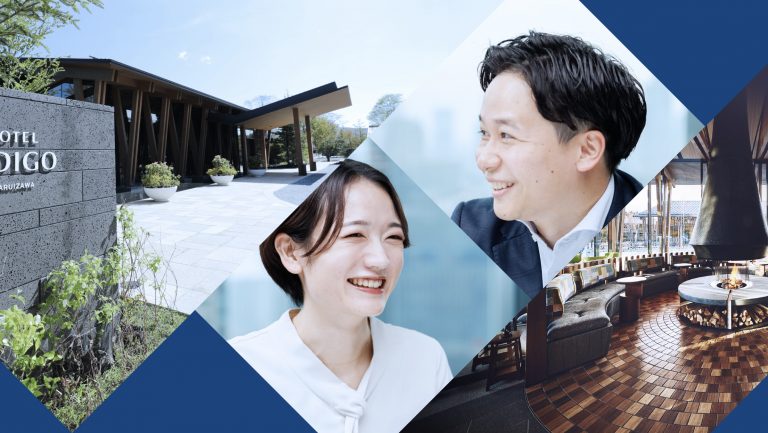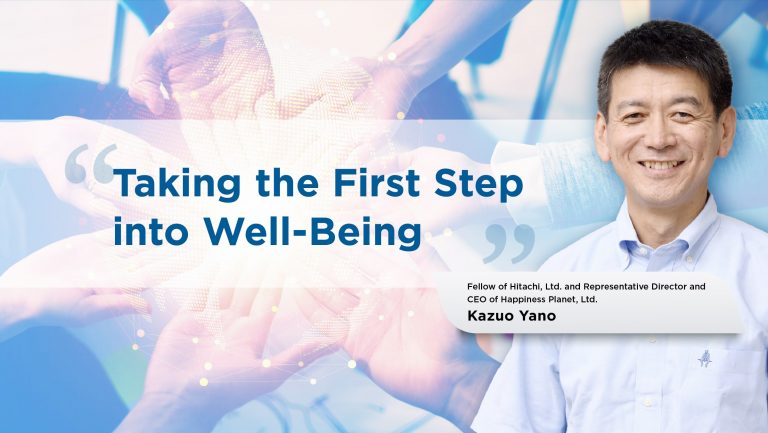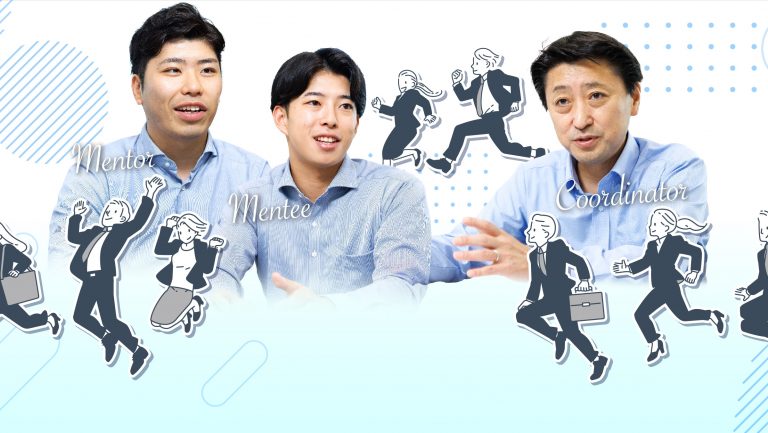
Occupational Health Physician Tips on Health and Productivity Management— What a Company Can Do for Officers and Employees
Sep 14, 2022
Most business people in Japan have likely heard of health and productivity management at least once. But some may have questions or concerns about this form of management and not really understand why their company engages in it or what difference it makes to their own health. There are also those who have been assigned to promote health and productivity management and may not be sure where to start.
With these issues in mind, Masato Kosaki and Masayo Kamimura of the Personnel Division (in charge of promoting health and productivity management) interviewed Dr. Hidekazu Mori, Tokyo Century’s occupational health physician, about the background to the demand for health and productivity management, the proper way to think about promoting health and productivity management, and changes in health during the COVID-19 pandemic.*
*Interview conducted in July 2022.
▼ INDEX
Why? ─The Health of Every Employee Will Help Stabilize Corporate Management
Kosaki: I see that many companies are now focusing on health and productivity management.
Mori: The working population is declining while the population of officers and employees is aging. This has led to a chronic labor shortage and, as a result, every employee has a heavy workload and greater burden in terms of social insurance premiums.
The mental and physical issues employees face, as well as the resulting decline in performance, are more than personal and family problems. Also, company performance may be affected too. So, protecting the health of officers and employees can help stabilize corporate management and become a driving force for a company to continue fulfilling its social responsibilities. Health and productivity management is an initiative that demonstrates corporate intent through practice.

Kamimura: When did companies become aware of health and productivity management?
Mori: The Ministry of Economy, Trade and Industry started the Certified Health & Productivity Management Outstanding Organizations Recognition Program in 2016, and the Act on the Arrangement of Related Acts to Promote Work Style Reform was enacted in 2018. I remember it was around that time that companies were becoming more actively engaged in health and productivity management.
Certified Health & Productivity Management Outstanding Organizations Recognition Program
This program recognizes companies that conduct outstanding health and productivity management based on initiatives that meet local health issues and health promotion initiatives promoted by the Nippon Kenko Kaigi. By visualizing outstanding companies engaged in health and productivity management, the program intends to create an environment in which they can be socially evaluated as companies that consider employee healthcare from a managerial perspective and strategically engage in it through employees, job applicants, related companies, and financial institutions.
Source: Website of the Ministry of Economy, Trade and Industry

Dr. Hidekazu Mori points out there are multiple factors behind the promotion of health and productivity management.
How? ─The Key to Health and Productivity Management Is Direct Communication from Management
Kosaki: What is the most important factor in health and productivity management?
Mori: If I had to mention only one important thing, I would say fostering awareness throughout the company. To this end, I believe that direct communication from management is effective. Responding to questions about why health and productivity management is needed and what changes it will bring, management must first issue a message with clear answers. This will make it easier for the divisions in charge to develop measures. It will also encourage officers and employees to take health and productivity management personally and become actively involved in it.
Kamimura: Making health and productivity management a personal matter is very important, wouldn’t you say? I’m always thinking about what I should do as the person in charge. Do you have any advice on developing certain measures?

Ms. Kamimura of the Personnel Division seeks ways to develop more effective measures to promote health and productivity management.
Mori: Devising ways to demonstrate the importance of health and productivity management, in an easy-to-understand and concrete manner, is needed. Sharing numerical data clearly would also be effective. For example, one indicator for measuring the progress of health and productivity management is the rate of presenteeism. Clarifying how measured values change after taking action could help a lot of people understand the reasons behind improvement.
You can use individual cases to highlight how positive changes were made to their lives by reviewing their drinking and smoking habits. There is nothing better than real-life experience, and when people are able to empathize with a story, they become motivated to take on a challenge and make improvements in their own lives.
Presenteeism
A condition in which an employee is at a workplace but unable to perform due to health reasons, resulting in lower work efficiency.
Mori: Criticizing someone for a habit regarded as physically or mentally unhealthy, such as over-eating, excessive drinking and smoking, over-eating, excessive drinking, and smoking, can only lead to unnecessary misunderstandings and friction. We should accept that everyone has their own reasons or explanations and that we should work together to try to improve their habits while being considerate of their feelings. Everyone also has their own perspective on health, so it’s important to share the benefits of improvement without pushing too hard or forcing things.
Case: Changes in the Mental and Physical Health of Business People Resulting from the COVID-19 Pandemic
Kosaki: The pandemic has had a significant impact on our lives. What related changes have been occurring in terms of mental and physical health?

Stress reduction for officers and employees during the COVID-19 pandemic is a major corporate concern. (Back right: Kosaki, Personnel Division)
Mori: I believe that many people feel their daily physical activity has become very constrained due to the normalization of remote work. Some people have even grown accustomed to an environment in which they do not see other people, experience having less self-control, and exhibit poor eating habits, leading to the development of lifestyle-related diseases.
Stress causes the body temperature to rise, so when someone measures their temperature every day, they experience anxiety even if their temperature is a little high. Then, the anxiety becomes stress, and the brain tires out, raising the body’s temperature even higher, which in turn increases the fear of being infected and forced to respond to the illness. People have told me that they suffer from this vicious cycle.
Kamimura: The new normal of the pandemic is also disrupting our daily communication.
Mori: If you’re physically in the same space, you can simply talk casually, but when you’re online, you have to coordinate times and seriously consider requests to set up meetings, so you’re in an environment that builds up an unprecedented level of stress.
Kosaki: What can we do to reduce that stress?
Mori: It is important to hold regular meetings by, for example, setting a specific day of the week and time. These shouldn’t be limited to sharing work progress, but rather there should be a greater focus on simply chatting with each other. Once you get to know more about someone’s personality and preferences, as well as their capabilities and experience, you’ll be able to build a more solid relationship of trust.

Develop: Difference between Health and Productivity Management and Well-being Management
Kamimura: The concept of well-being management is also attracting attention as an advanced form of health and productivity management. What’s the difference between the two?
Mori: Health and productivity management is based on the idea that a company strategically formulates specific measures to protect the mental and physical health of every employee. On the other hand, well-being management is based on a concept that goes beyond basic mental and physical health and more deeply into how to lead a more fulfilling and socially satisfying life.
Mental and physical health and socially satisfying situations are inseparable and somewhat mutually influential. Officers and employees face a variety of problems, such as financial trouble, childcare and nursing care issues, difficulty in personal relationships and concerns over future career. As an occupational health physician, I recognize that my area of practice requires working with the relevant divisions in the company to resolve these concerns as well as making referrals to external organizations and taking other actions as necessary.

Kosaki: Do you mean that we can feel free to consult you about our mental and physical health and other concerns?
Mori: Of course, you’re welcome to. Please feel at ease talking about your concerns with me. And let’s solve any problems together.
Future: Performance of Every Employee Reflected in the Work Atmosphere and Facial Expressions
Kosaki: Tokyo Century established its Basic Policy on Health and Productivity Management and specific initiatives in line with the policy in March 2022. It took about two years to enact, and you’ve provided a lot of advice while creating it together. Several measures are now in progress. Could you tell us what’s needed to continue health and productivity management in the years ahead?
Mori: Keep setting goals for health and productivity management, just like you do for business development, and share a sense of accomplishment among all employees. Statistically proving the positive results of lifestyle improvement or getting certified as an outstanding organization in health and productivity management would be the most evident accomplishment for sharing.
While such data and external evaluations are clearly important, I must say that being preoccupied with those is putting the cart before the horse.
Kamimura: Do you mean there are other changes that can produce meaningful results?
Mori: Yes. From my experience as an occupational health physician, I feel that companies promoting health and productivity management are most satisfied when they see that the faces of their employees appear brighter, or when they start hearing laughter in the workplace.
Kamimura: It certainly has an impact when you directly see changes. I’d like to create a system that encourages every employee in the Tokyo Century Group to actively engage in health and productivity management while utilizing ways familiar to Tokyo Century, such as disseminating information through e-learning.
Kosaki: Teamwork is one of our strengths, and our president has expressed his commitment to health and productivity management. As the person in charge of promoting this management, I’ll do whatever I can to advance measures so that each officer and employee can deepen their understanding of it. Thank you for your continued support, Dr. Mori.
Mori: When this article is published (September 2022), the summer heat may still be lingering. Take good care of yourself, both in terms of diet and sleep, and let’s continue working together to encourage health and productivity.

Dr. Mori with others in charge of promoting health and productivity management, Personnel Division, Tokyo Century (Kosaki, Kamimura, Miyazawa, and Takagi)

Hidekazu Mori
Occupational Health Physician
Since graduating from the University of Occupational and Environmental Health, Japan, he has worked as a psychosomatic internal medicine physician at the university, and since fiscal 2020 has been an occupational health physician for Tokyo Century. He possesses in-depth knowledge and flexibility in the field of mental health based on his experience as a doctor for more than 18 years and as an occupational health physician for companies in different industries, from IT to entertainment. He is an occupational health consultant; occupational health physician certified by the Japan Medical Association; fellow of the Japanese Society of Internal Medicine; specialist in psychosomatic medicine certified by the Japanese Society of Psychosomatic Medicine and the Japanese Society of Psychosomatic Internal Medicine; and labor and social security attorney.

Masato Kosaki
Deputy General Manager, Diversity Promotion Office, Personnel Division, Tokyo Century Corporation
He joined Century Leasing System, Inc. (now Tokyo Century) in 1993. Since April 2014, he has been working in the Personnel Division, where he is in charge of diversity and respect for human rights in addition to promoting health and productivity management.

Masayo Kamimura
Personnel Division, Tokyo Century Corporation
She joined the company in 2021. In her previous job, she gained knowledge of social insurance systems and experience in personnel operations. Utilizing such knowledge and experience, she is currently in charge of health and productivity management as well as the operating practices of the childcare leave system in the Personnel Division.
RECOMMEND ARTICLES
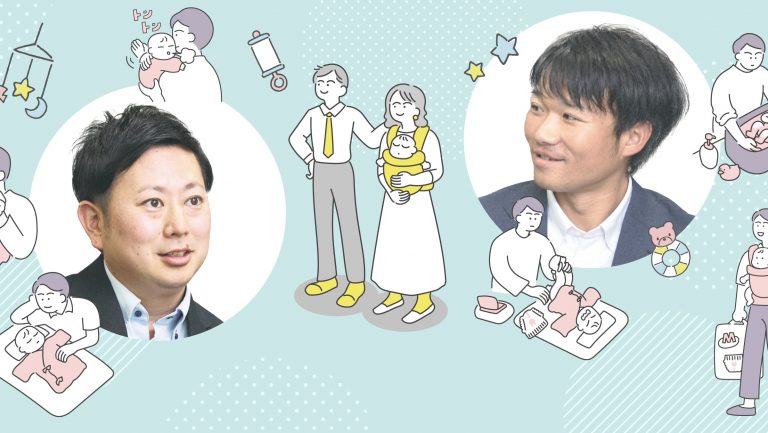
Feb 28, 2024
With the Act on Chil…
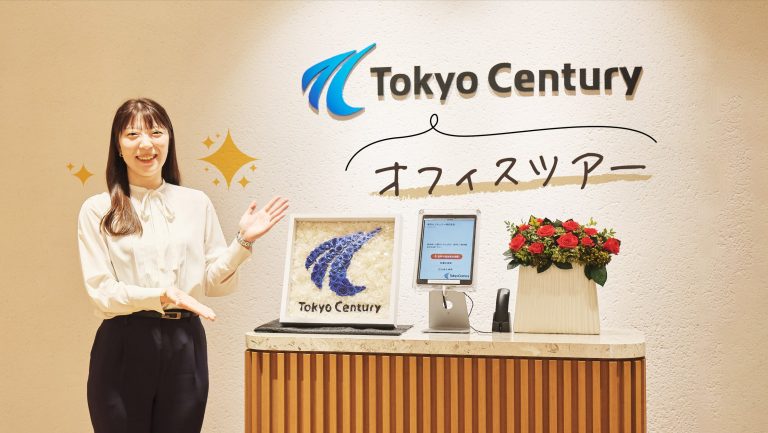
Sep 27, 2023
TOKYO TORCH is a new…


